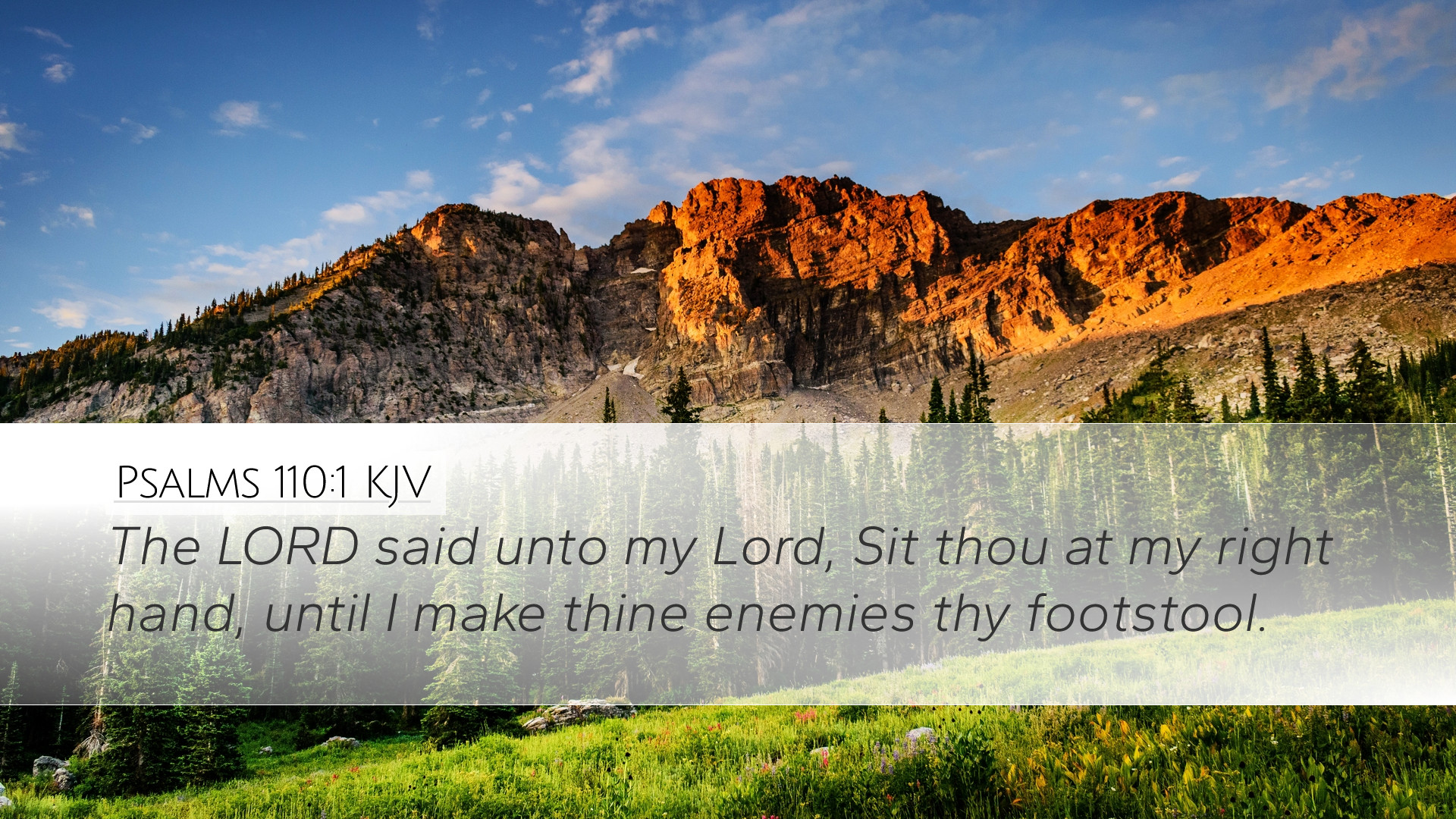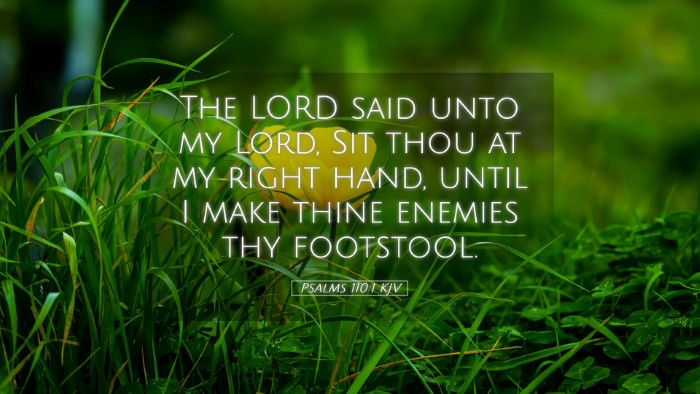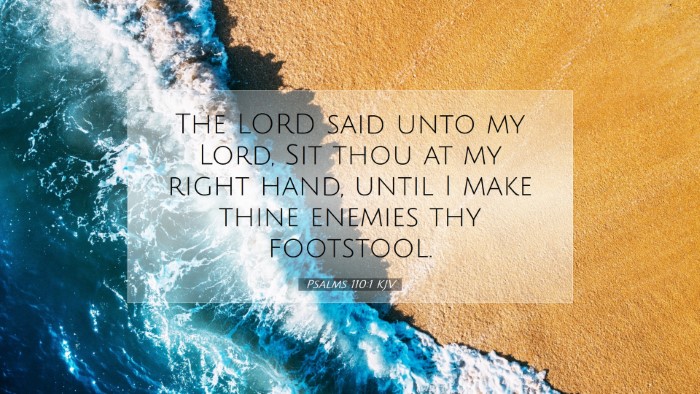Psalms 110:1 - Commentary and Insights
Text of Psalms 110:1 (KJV): "The LORD said unto my Lord, Sit thou at my right hand, until I make thine enemies thy footstool."
Introduction
Psalms 110:1 is one of the most significant verses in the Hebrew Bible, holding profound implications for Christology and the understanding of the divine authority of the Messiah. This psalm, attributed to David, speaks of a conversation between God and the Messiah, referred to as "my Lord." The implications of this verse are vast, extending into New Testament theology and the eschatological expectations of the faithful.
Commentary Overview
In this commentary, insights from esteemed public domain scholars such as Matthew Henry, Albert Barnes, and Adam Clarke will be compiled to elucidate the theological and practical implications of Psalms 110:1 for today's pastors, students, theologians, and Bible scholars.
Authorship and Context
Authorship: The psalm is ascribed to David, indicating his understanding of a divine Messianic figure who would fulfill God's promises.
Contextual Background: This psalm emerges from a context of covenant promises made to David regarding his lineage and reign. The phraseology and structure suggest a reflection on royal authority, priesthood, and eschatological victory.
The LORD said unto my Lord
Matthew Henry notes that this phrase marks the divine communication that affirms the exaltation of the Messiah. It signifies a unique relationship between “The LORD” (YHWH) and “my Lord” (Adonai), which David acknowledges. This statement illustrates the duality of Christ’s nature—fully divine and fully human. Henry emphasizes that the “my Lord” refers specifically to the one whom God appointed to rule, a position of honor and authority.
Albert Barnes elaborates on this relationship by stating that it is crucial to understand that David recognizes his Lord as distinct from himself, which signifies an acknowledgment of a higher, divine authority that transcends David's own kingship.
Sit Thou at My Right Hand
The command to “Sit thou at my right hand” is rich with meaning. This position signifies authority, honor, and power. Adam Clarke highlights the traditional significance of the right hand as a place of favor and strength, indicating that this exaltation is not merely a figurative expression but a literal placement indicating the Messiah's rule and power. This scene foreshadows Christ’s ascension and his seated position at the right hand of God, as emphasized in the New Testament (Hebrews 1:3, 10:12).
Until I Make Thine Enemies Thy Footstool
This phrase indicates an expected triumph over the enemies of God. Matthew Henry explains that this imagery of enemies being made a footstool signifies total subjugation and victory. Theological scholars agree that it portrays the ultimate defeat of evil and the establishment of God’s kingdom on earth. Adam Clarke adds that this dynamic of victory not only assures believers of future justice but also serves as a reminder of God's sovereignty over all creation.
Albert Barnes underscores that the enemies mentioned may refer not only to earthly foes but also to spiritual adversaries, encompassing all powers that oppose God’s reign. This victory is both present and future, extending through the community of believers who share in Christ’s triumph.
Theological Implications
This verse has significant implications for understanding the identity of Christ and the nature of His kingship. The New Testament reinforces this understanding in Matthew 22:44 and Acts 2:34-35, where the apostles cite this psalm to argue for the divinity of Christ and His role as the exalted Messiah.
The mutual recognition between David and the Messiah reveals deep theological truths about divine authority, the nature of Christ’s kingdom, and the ultimate plan of redemption. Scholars assert that this verse foresees the establishment of a new order in which Christ reigns supremely over all creation, making it essential for understanding Christian eschatology.
Practical Applications
- For Pastors: This verse can serve as a reminder of the authority that Christ has over the church and the importance of conducting ministry under His lordship.
- For Students: Engaging with this psalm encourages deeper study into Messianic prophecies and their fulfillment in Christ, fostering a richer theological understanding.
- For Theologians: The discussion around the implications of the right-hand seating of Christ opens avenues for further exploration into Christology and trinitarian relationships.
- For Bible Scholars: The historical and cultural context of this psalm provides valuable insights into Jewish messianic expectations, enhancing comparative studies with New Testament writings.
Conclusion
Psalms 110:1 stands as a profound declaration of divine authority and Messianic promise. It has implications that reach far beyond its immediate context, influencing New Testament writings and the Christian understanding of Christ’s eternal kingship. Through the insights gained from esteemed commentators, readers are encouraged to recognize the richness of this verse, fostering an appreciation for God’s sovereign plan and the triumph secured through Christ.


